Circular economy model vital to business development
Nguyen Mai, chairman of the Vietnam Association of Foreign-invested Enterprises, said that the linear economy poses a growing threat of resource depletion.
Compared to half a century ago, global consumption has increased by 190 per cent, and the demand for the natural resources that are necessary for economic development is currently 1.7-fold greater than the earth's capacity.
Therefore, unless production methods are changed, the consequences of resource depletion cannot be avoided.
Transitioning from a linear economy to circularity is necessary because this is an economic model in which design, production, and service activities aim to prolong the life of materials and eliminate the negative impacts on the environment.
The shift will create a great opportunity for rapid and sustainable development, achieving economic, social, and environmental goals while helping to mitigate climate change.
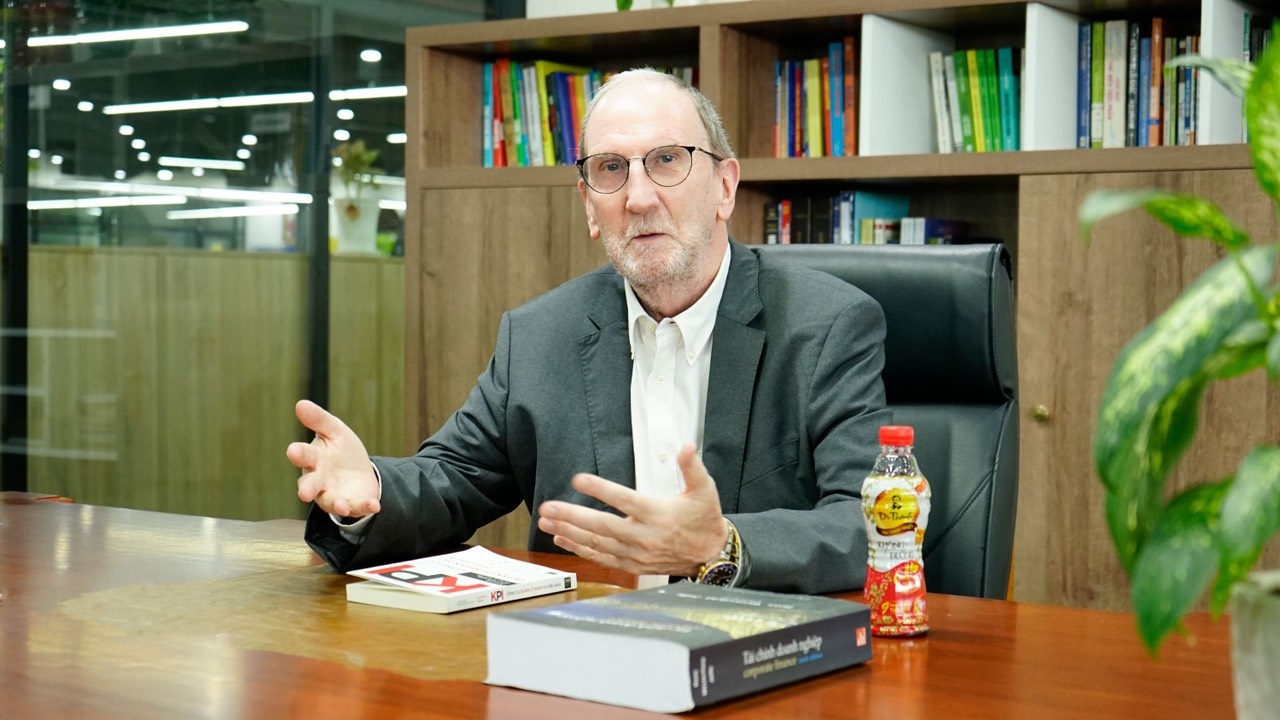 |
| David Riddle, Tan Hiep Phat Group representative |
David Riddle, representative of the southern beverage major Tan Hiep Phat Group said, "The circular economy is key to sustainable development, and even highly developed economies like Singapore must reconsider how they can successfully protect the environment, conserve resources, and achieve circularity."
On a global scale, many large corporations began moving towards a circular economic model very early.
The Tan Hiep Phat executive gave the example of Estée Lauder, a family-owned company founded in the US in 1946, that, since the 1970s, has focused on minimising packaging with a simple no-package approach, only providing it to consumers when there is a specific need.
Benefits to businesses and the community
When choosing to shift to a circular economy, businesses will face myriad difficulties.
Professor Mai stated, "Businesses must accept a slower pace initially, before then ramping up because investing in technology and training highly qualified human resources can push up production costs, and affect the consumption and competitiveness of products and services in the short term."
However, if the world continues its current production model, it will face even greater risks as it runs out of resources.
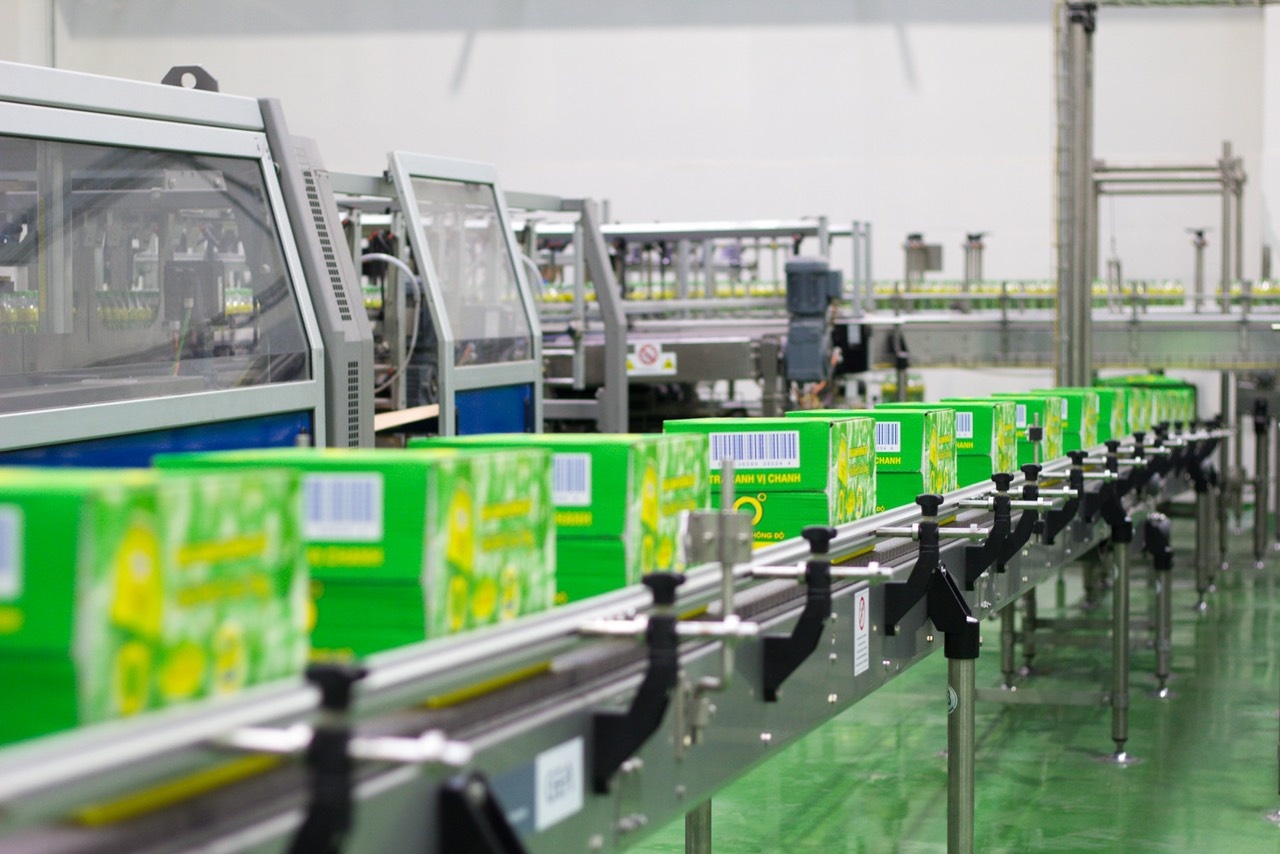 |
| Tan Hiep Phat Group's cutting-edge production line |
In Vietnam, Tan Hiep Phat Group has set an example in the beverage industry with its transition using the 3R model – reduce, reuse, and recycle – since 2013.
This model brings economic benefits to businesses and contributes to the development of the community, promoting sustainable development.
| Tan Hiep Phat Group has set an example in the beverage industry with its transition using the 3R model. |
A decade ago, Tan Hiep Phat embraced a flagship bottle lightening project in which the weight of each bottle was reduced by nearly 20 per cent.
Simultaneously, through investing in German aseptic technology, the company has reduced the loss rate in its production process and saved on electricity and water usage. As of 2023, 78,000 tonnes of plastic waste has been reduced by the group.
Other important measures in the 3R model include recycling and reusing shrink film and plastic bags produced by the company, and eliminating the use of cardboard boxes by replacing them with shrink film made from recycled plastic.
In 2021, Tan Hiep Phat installed a plastic recycling line in a bid to produce recycled HDPE and other pellets from plastic scraps.
Riddle noted, “The circular economy is both meaningful and necessary, and it is time for businesses to participate. We need a strong legal corridor that stipulates specific responsibilities for manufacturers and distributors on collecting, sorting, and recycling, as well as payments for waste management costs.”
Leveraging the core value of being responsible for society, Tan Hiep Phat Group’s circular economic model demonstrates its commitment to putting the common good of the community at the forefront for the prosperity of all.
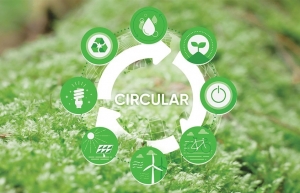 | Implementation of the circular economy in Vietnam The circular economy concept was developed as a forward-looking solution for society in the face of escalating environmental pollution and resource depletion. Le Khanh Lam, chairman of RSM Vietnam, offers an overview of how the country is implementing a number of innovative manufacturing and business models that are geared towards a circular economy. |
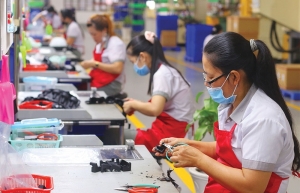 | Drastic moves vital for labour capacity The government is being urged to find ways to improve the country’s labour productivity, which is a large condition for attracting more high-quality investment, which is now on a downtrend. |
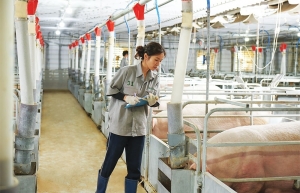 | Livestock companies latch onto gains involving circular economic model The circular economy is hitting its stride among livestock companies across the country, and are expected to gain increased revenues in the next few years thanks to applying fresh and greener methods. |
What the stars mean:
★ Poor ★ ★ Promising ★★★ Good ★★★★ Very good ★★★★★ Exceptional
Related Contents
Latest News
More News
- Trung Nam-Sideros River consortium wins bid for LNG venture (January 30, 2026 | 11:16)
- Vietnam moves towards market-based fuel management with E10 rollout (January 30, 2026 | 11:10)
- Envision Energy, REE Group partner on 128MW wind projects (January 30, 2026 | 10:58)
- Vingroup consults on carbon credits for electric vehicle charging network (January 28, 2026 | 11:04)
- Bac Ai Pumped Storage Hydropower Plant to enter peak construction phase (January 27, 2026 | 08:00)
- ASEAN could scale up sustainable aviation fuel by 2050 (January 24, 2026 | 10:19)
- 64,000 hectares of sea allocated for offshore wind surveys (January 22, 2026 | 20:23)
- EVN secures financing for Quang Trach II LNG power plant (January 17, 2026 | 15:55)
- PC1 teams up with DENZAI on regional wind projects (January 16, 2026 | 21:18)
- Innovation and ESG practices drive green transition in the digital era (January 16, 2026 | 16:51)

 Tag:
Tag:

























 Mobile Version
Mobile Version